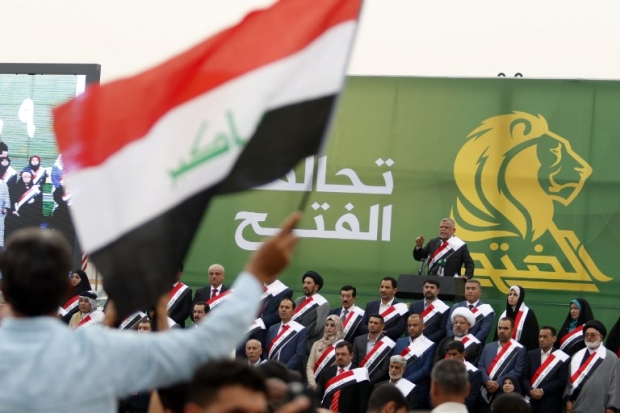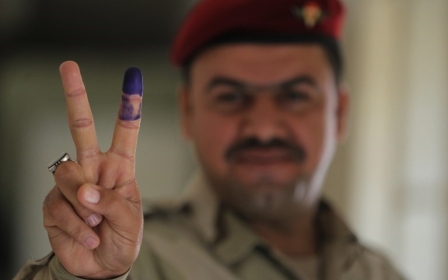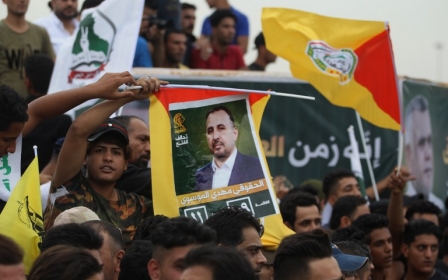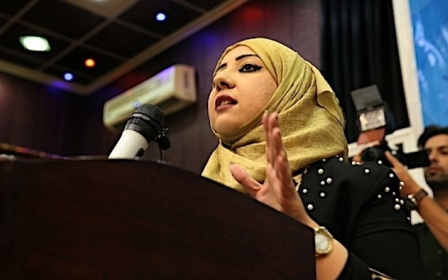Iraq elections: Why Sadr’s alliance deserves a chance to govern
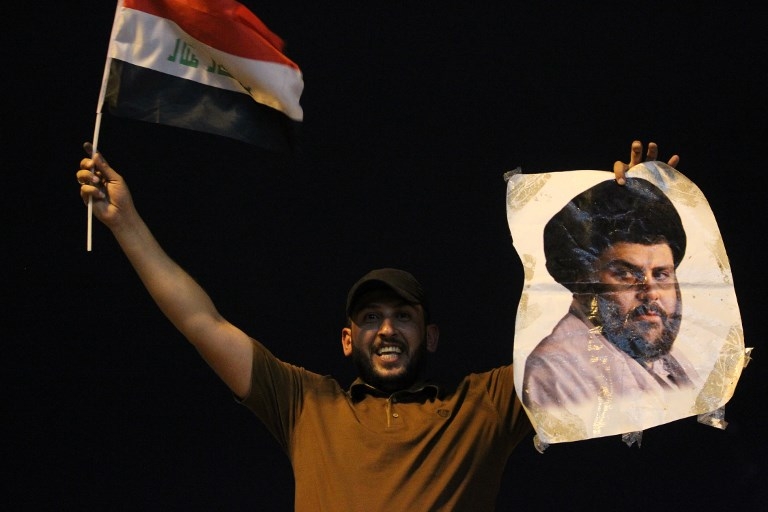
The dramatic lead that Muqtada al-Sadr's alliance with secular forces has taken in Iraq's preliminary election results is the best news the war-torn country has had in years.
It suggests that a substantial proportion of Iraqi voters is moving away from identity politics towards the issue-based politics that are the necessary foundation for stability in any multi-ethnic, multi-religious and multicultural society.
Iraq has been bedevilled by sectarian killings and Sunni-versus-Shia tensions for most of the post-Saddam period, but the support that Sadr's electoral coalition has achieved suggests the wellspring for this kind of political violence is drying up. The alliance began almost two years ago when Sadr urged his followers to join the weekly anti-corruption protests that the Iraqi Communist Party and other civil society groups were holding in Baghdad’s Tahrir Square.
Corruption and complacency
The marriage of convenience between a powerful Shia religious leader and secular left-wingers was initially awkward, as I saw for myself one Friday last year. The two groups barely mingled, and each carried different slogans and posters as they stood nominally together.
But what united them was a strong sense of anger at the corruption and complacency of the post-invasion elite and its failure to provide services for the country's huge swath of poor citizens, in spite of Iraq’s oil wealth.
Sadr's block could be shut out as other party leaders make their deals to share power. This would be a terrible outcome
Prime Minister Haider al-Abadi founded his electoral campaign on the military victory over the Islamic State (IS). So too, though to a lesser extent, did Hadi al-Ameri, the leader of the Badr Organisation, one of Iraq's oldest Shia militias.
While Sadr's followers are equally satisfied that IS has been driven out of Iraq, they are aware that it was the ruling elite's alienation of the country's minority Sunnis, particularly under former prime minister Nouri al-Maliki, backed by Ameri, that allowed IS to emerge as a military and ideological force in the first place.
Sadr's alliance with the Communists is being described in much media and diplomatic analysis this week as "surprising". But its strength has been clear for a long time. In an interview with me last year - one of his rare encounters with a foreign journalist - Sadr outlined the positions that became the bedrock of his electoral campaign, along with candidates for the Communists and other secular groups: a strict clampdown on corruption, an end to sectarian quotas in handing out government jobs, the disbanding of all militias and their merging with the Iraqi national army, no intervention by Iraqi forces or militias across the border into Syria, and reconciliation between Shia and Sunni religious, political and community leaders.
Iran and the US
He even dared to say that once IS had been defeated, he wanted Iranian forces and the Americans to leave Iraq. While he called the Americans "invaders", he was diplomatic enough to call the Iranians "friendly forces" - but his message that both sides should leave Iraq was bold. It went well beyond anything that Abadi or Ameri would say or want.
No wonder that Tehran has publicly declared it will not allow Sadr to take power or play the decisive role in the government that will be formed after this weekend’s elections. "We will not allow liberals and communists to govern in Iraq," Ali Akbar Velayati, the senior adviser on foreign affairs to Iranian Supreme Leader Ayatollah Ali Khamenei, said in February.
Mathematically, it would be possible for Abadi, who came third in the poll, and Ameri, who came second, to join forces and form an administration - but it is hard to see that happening, as Abadi would have to cede his job to Ameri.
The equation that may satisfy both Washington and Tehran, and be sold as a sensible balance, would be for Abadi to stay on as prime minister in alliance with the Kurds and the group led by another former prime minister, Ayad Allawi.
Under a judgement issued by the federal court in 2010, the prime minister comes from the post-election coalition with the most seats rather than from the pre-election alliance that wins the most seats. So Sadr’s block could be shut out as other party leaders make their deals to share power.
Post-election haggling
This would be a terrible outcome on at least two counts. It would show voters that the post-invasion Shia elites, Abadi's Dawa party and Ameri's Badr, are still determined to cling to power, paying no heed to voters' anger over corruption. It would also risk the further estrangement of the Sunni population, many of whom have lost their homes because of the IS uprising and the massive bombing campaigns unleashed in the struggle to defeat it.
Sadr's alliance is much better placed to win Sunni support than any of the alternatives. Although a prime minister whom he nominated would necessarily have to work with other strong rivals, including Abadi, and offer them some ministerial portfolios, the damage would not be severe if it was clear that they were in subordinate positions.
An ideal candidate for Iraq's next prime minister would be Raed Fahmy, the Communist Party's secretary general, an urbane engineer with considerable political experience who led the Communist faction in the outgoing parliament. But the Sadrists have said they would rather go into parliament as the official opposition than be a junior part of a traditional coalition.
Let us hope it does not come to that. Iraq's voters have shown they want to turn a new page. As the post-election haggling begins, it would be a disgrace to let them down.
- Jonathan Steele is a veteran foreign correspondent and author of widely acclaimed studies of international relations. He was the Guardian's bureau chief in Washington in the late 1970s, and its Moscow bureau chief during the collapse of communism. He has written books on Iraq, Afghanistan, Russia, South Africa and Germany, including Defeat: Why America and Britain Lost Iraq (I.B.Tauris 2008) and Ghosts of Afghanistan: the Haunted Battleground (Portobello Books 2011).
The views expressed in this article belong to the author and do not necessarily reflect the editorial policy of Middle East Eye.
Photo: An Iraqi man celebrates with a picture of Shia cleric Muqtada al-Sadr during the general election in Baghdad on 14 May 2018 (AFP)
Middle East Eye propose une couverture et une analyse indépendantes et incomparables du Moyen-Orient, de l’Afrique du Nord et d’autres régions du monde. Pour en savoir plus sur la reprise de ce contenu et les frais qui s’appliquent, veuillez remplir ce formulaire [en anglais]. Pour en savoir plus sur MEE, cliquez ici [en anglais].



